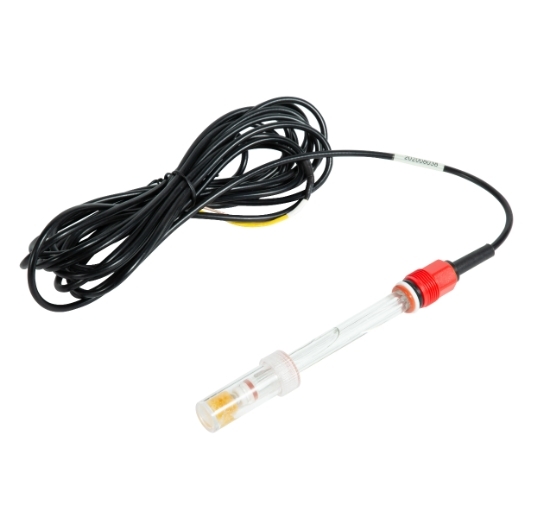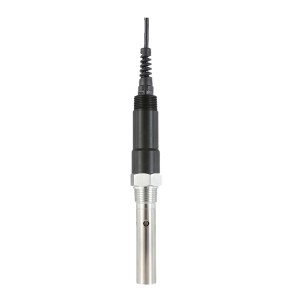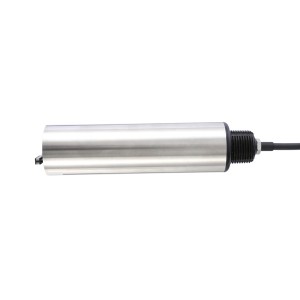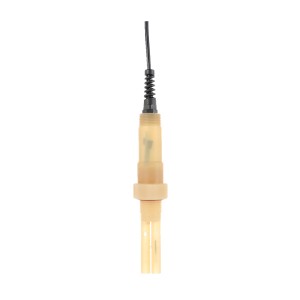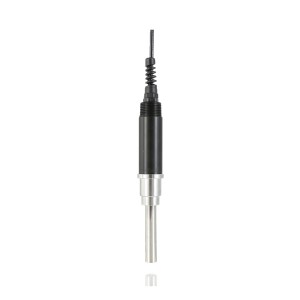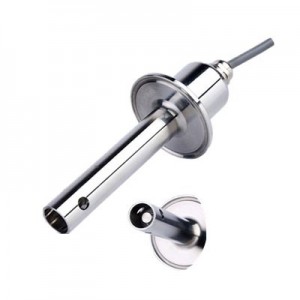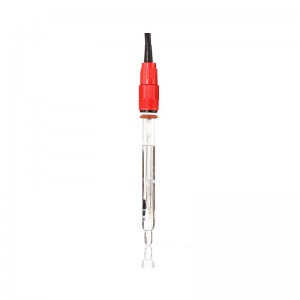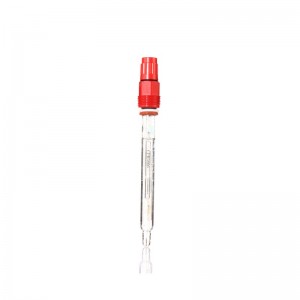Industrial water treatment is a critical process in various industries, ensuring the quality and safety of water used in manufacturing, cooling, and other applications. One essential tool in this process is the Oxidation-Reduction Potential (ORP) sensor. ORP sensors are instrumental in monitoring and controlling the quality of water by measuring its oxidation-reduction potential, a key indicator of water’s ability to support chemical reactions.
ORP Sensors: What Are They and How Do They Work?
ORP sensors, also known as redox sensors, are analytical instruments used to determine the oxidation or reduction potential of a solution. The measurement is expressed in millivolts (mV) and signifies the solution’s ability to oxidize or reduce other substances. Positive ORP values indicate the solution’s oxidizing nature, while negative values suggest its reducing capabilities.
These sensors consist of an electrode system with two types of electrodes: a reference electrode and a working electrode. The reference electrode maintains a stable reference potential, while the working electrode comes into contact with the solution being measured. When the working electrode contacts the solution, it generates a voltage signal based on the solution’s redox potential. This signal is then converted into an ORP value that reflects the solution’s oxidative or reductive power.
Solving Water Quality Issues with ORP Sensors: Case Studies
ORP sensors are employed in various industrial sectors to ensure water quality, and their application in case studies demonstrates their efficacy in solving water quality issues. Let’s explore a few examples:
Case Study 1: Wastewater Treatment Plant
A wastewater treatment plant faced a recurring issue of unstable effluent water quality. The plant incorporated ORP sensors in its treatment process to monitor the oxidation potential of the effluent water. By optimizing the dosage of chlorine and other chemicals based on real-time ORP measurements, the plant achieved consistent water quality and minimized the discharge of harmful substances into the environment.
Case Study 2: Cooling Water System
A manufacturing facility’s cooling water system was experiencing corrosion and scaling issues, leading to equipment damage and reduced operational efficiency. ORP sensors were installed in the system to monitor the water’s redox potential. With continuous monitoring, the facility was able to adjust chemical treatment dosages to maintain a balanced and controlled ORP level, preventing further corrosion and scaling problems.
Case Study 3: Food and Beverage Industry
A food and beverage processing plant was struggling with maintaining the freshness of their product. ORP sensors were employed to monitor the quality of the water used in their processes. By ensuring that the water had the right oxidation potential, the plant improved the shelf life and quality of its products, ultimately enhancing customer satisfaction and reducing product waste.
Using ORP Sensors for Detecting Contaminants in Drinking Water
Ensuring the safety of drinking water is a top priority for communities and municipalities. Contaminants in drinking water can pose significant health risks, and the use of ORP sensors can help identify and mitigate these concerns. By monitoring the redox potential of drinking water, authorities can detect contaminants and take appropriate actions to maintain water quality.
Case Study 4: Municipal Water Treatment
A city’s municipal water treatment plant implemented ORP sensors to monitor the incoming water quality from its sources. By continuously measuring the ORP values, the plant could detect changes in water quality due to contaminants or other factors. In cases of unexpected shifts in ORP, the plant could immediately investigate and take corrective actions, ensuring safe and clean drinking water for the community.
High-Temperature ORP Sensor: PH5803-K8S
ORP sensors come in various types to meet specific industrial requirements. One notable variant is the high-temperature ORP sensor, such as the PH5803-K8S model from Shanghai BOQU Instrument Co., Ltd. These sensors are designed to withstand harsh conditions with a temperature range of 0-130°C.
The PH5803-K8S ORP sensor boasts several key features that make it suitable for demanding applications. It is known for its high measurement accuracy and good repeatability, ensuring reliable results in critical processes. Its long life span minimizes the need for frequent replacements, reducing maintenance costs.
One of the remarkable features of the PH5803-K8S is its ability to resist high pressure, withstanding up to 0-6 Bar. This resilience is invaluable in various industries, including bio-engineering, pharmaceuticals, beer production, and food and beverages, where high-temperature sterilization and pressure resistance are essential.
Additionally, the PH5803-K8S comes equipped with a PG13.5 thread socket, which allows for easy replacement by any overseas electrode. This versatility ensures that the sensor can be adapted to specific requirements and environments.
Industrial Online ORP Sensor Models
In addition to high-temperature ORP sensors, industrial online ORP sensors play a vital role in monitoring and controlling water quality in various applications. Shanghai BOQU Instrument Co., Ltd. offers two models: PH8083A&AH and ORP8083, each tailored to specific conditions and requirements.
Model: PH8083A&AH
The PH8083A&AH ORP sensor is designed for applications with a temperature range of 0-60°C. What sets it apart is its low internal resistance, which minimizes interference, ensuring accurate and reliable readings.
The sensor’s platinum bulb part further enhances its performance, making it suitable for industrial wastewater treatment, drinking water quality control, chlorine and disinfection processes, cooling towers, swimming pools, water treatment, poultry processing, and pulp bleaching. Its ability to operate effectively in these diverse settings makes it a versatile tool for water quality management.
Model: ORP8083
The ORP8083 is another industrial online ORP sensor with a temperature range of 0-60°C. Like the PH8083A&AH, it features low internal resistance and a platinum bulb part, offering accurate and interference-free ORP measurements.
Its applications span a wide range of industrial settings, including industrial wastewater treatment, drinking water quality control, chlorine and disinfection processes, cooling towers, swimming pools, water treatment, poultry processing, and pulp bleaching. With its reliable performance and adaptability to various conditions, the ORP8083 is a valuable asset in industrial water treatment.
The Role of ORP Sensors in Industrial Water Treatment
ORP sensors are indispensable in industrial water treatment processes. They enable industries to maintain the quality and safety of their water supply while adhering to stringent regulations. The ORP value, a measure of water’s oxidative or reductive potential, provides crucial information for controlling chemical reactions and disinfection processes.
In applications such as cooling towers and swimming pools, monitoring ORP levels helps prevent the growth of harmful microorganisms. In pulp bleaching, maintaining the right ORP level is vital for the effectiveness of bleaching chemicals. For industrial wastewater treatment, accurate ORP measurements aid in the removal of contaminants.
Shanghai BOQU Instrument Co., Ltd. is a reputable manufacturer of ORP sensors, offering a range of models suitable for different environments and applications. Their high-temperature ORP sensor and industrial online ORP sensors provide industries with reliable tools to ensure water quality and safety.
Conclusion
ORP sensor is an essential tool in industrial water treatment, playing a significant role in ensuring the quality and safety of water in diverse applications. High-temperature ORP sensors, such as the PH5803-K8S model, offer excellent performance in demanding conditions, while industrial online ORP sensors, like the PH8083A&AH and ORP8083, provide accurate measurements and low interference for various industrial settings.
Shanghai BOQU Instrument Co., Ltd. stands as a trusted manufacturer, providing industries with the tools they need to control water quality and adhere to regulatory standards. With ORP sensors, these industries can confidently manage their water treatment processes, knowing that their systems are equipped with reliable and accurate monitoring equipment.
Post time: Nov-07-2023

